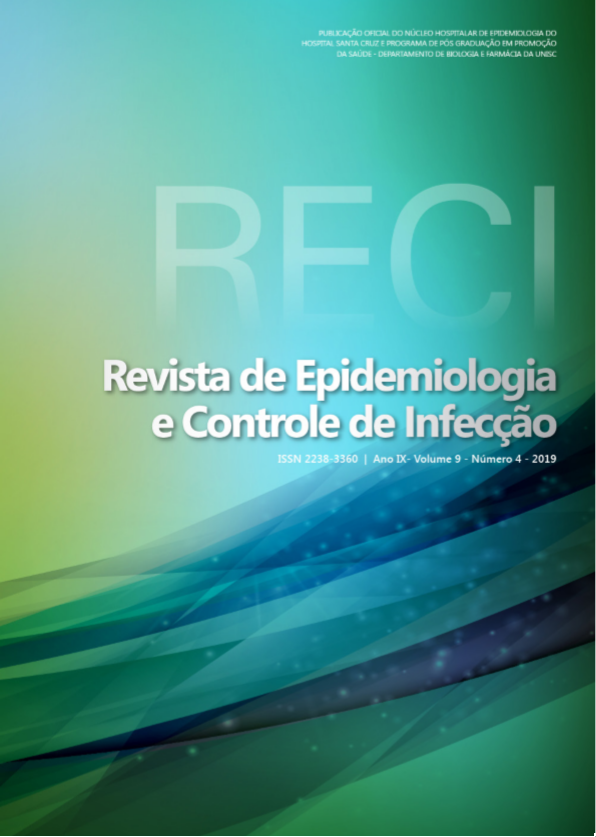Epidemiological profile of the care of the suspect cases of coqueluche in a particular hospital of Maceió in the period from 2013 to 2017
DOI:
https://doi.org/10.17058/.v9i4.13329Keywords:
Whooping Cough. Mandatory Reporting. Epidemiological Monitoring.Abstract
Background and Objectives: to define the profile of the target population affected by the disease, it is possible to trace the suspected cases, identify and stratify the cases and elaborate an epidemiological profile of the hospital care to obtain a contingency plan in the care flow. Methods: descriptive study, with quantitative approach in the context of notifications. For the epidemiological study, the data of the Information System of Notifiable Diseases, the Laboratory Management System, the Electronic Records System and the internal spreadsheet were used. The collected data were distributed in an idealized spreadsheet using the Excel program, and its results were expressed by the descriptive and quantitative statistics in absolute frequency. The search for the data was defined between the years of 2013 and 2017 for the pertussis report, from which the suspected and confirmed cases were stratified by age, gender, and the occurrence of diagnostic confirmation. Results: From January 2013 to December 2017, 48 suspected pertussis cases were reported, of which 2 (4.2%) cases were confirmed. The number of cases of whooping cough presented a high number in the year 2014 in the months of March and June and in the following years a stabilization was perceived. Conclusion: a large number of suspected cases were observed without clinical investigation, that is, without the presence of laboratory tests to confirm or rule out this pathology.Downloads
Downloads
Published
How to Cite
Issue
Section
License
The author must state that the paper is original (has not been published previously), not infringing any copyright or other ownership right involving third parties. Once the paper is submitted, the Journal reserves the right to make normative changes, such as spelling and grammar, in order to maintain the language standard, but respecting the author’s style. The published papers become ownership of RECI, considering that all the opinions expressed by the authors are their responsibility. Because we are an open access journal, we allow free use of articles in educational and scientific applications provided the source is cited under the Creative Commons CC-BY license.


